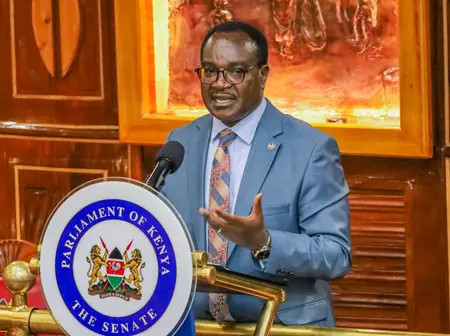The Government is preparing reforms to address challenges facing Junior Secondary Schools (JSS), including independence, staffing, and infrastructure gaps.
Education Cabinet Secretary Julius Migos Ogamba told the Senate on Wednesday that the Ministry is committed to reviewing the JSS system to respond to concerns raised by teachers, parents, and lawmakers.
“The process of reforming Junior Secondary to respond to any emerging concerns is in progress. At the appropriate time, Parliament will be presented with proposals for its consideration,” Ogamba said.
He explained that while JSS is currently running under recommendations of the Presidential Working Party on Education Reforms, consultations are still ongoing.
The CS admitted that the competency-based curriculum had introduced new subjects that did not always match teacher specialisations. However, he assured Senators that teachers had undergone training to fill the gaps.
“All teachers in Junior School have undergone retooling to equip them with the necessary pedagogical skills to handle the new curriculum,” he said.
He added that the Government had prioritised recruitment of teachers in science, mathematics, and technical subjects, which are facing the greatest shortages.
On infrastructure, Senators raised concerns about lack of practical spaces such as laboratories and workshops. Ogamba acknowledged the challenge but said progress was being made, citing the construction of 23,000 classrooms nationwide.
“Currently, schools without dedicated laboratories have designated rooms equipped to support practical components. We have instructed Junior Schools to use their infrastructure repair, maintenance, and improvement allocation to establish laboratories. This allocation provides Sh4,000 per learner annually,” he said.
The CS noted that the Ministry is using a multi-pronged approach to bridge gaps, including targeted budget allocations, support from development partners like the World Bank, Global Partnership for Education, the Kuwaiti Fund, and the Safaricom Foundation.
He also highlighted alumni-driven initiatives where former students mobilise resources and labour to upgrade their schools.
“Such community-driven efforts foster a sense of ownership and responsibility in improving educational facilities,” Ogamba said.

Leave a Reply